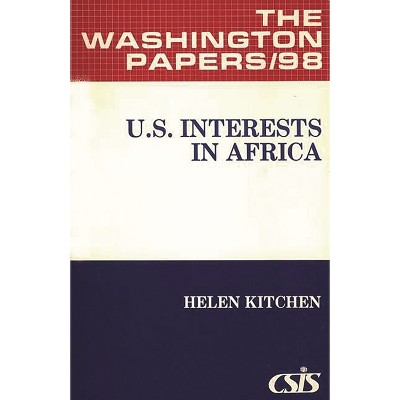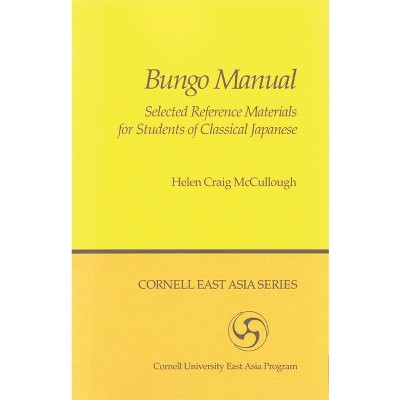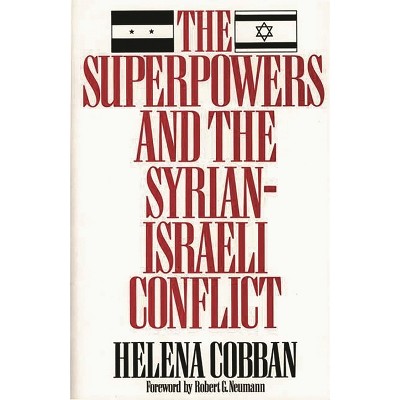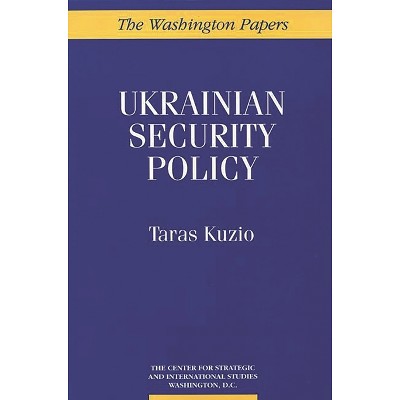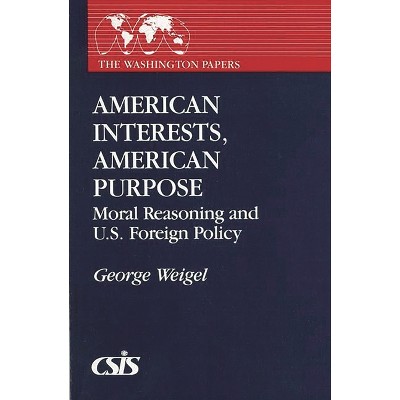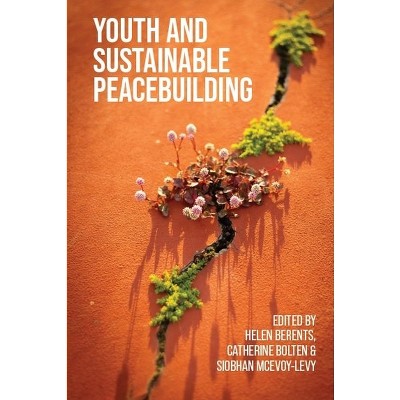Sponsored

Angola, Mozambique, and the West - (Washington Papers) by Helen Kitchen (Paperback)
In Stock
Sponsored
About this item
Highlights
- Helen Kitchen has drawn on the expertise of a trio of respected U.S., British, and West German analysts to assist in what she does best--explaining the diversity and complexity of African political dynamics.
- About the Author: HELEN KITCHEN is Director of African Studies, Center for Strategic and International Studies.
- 168 Pages
- Political Science, International Relations
- Series Name: Washington Papers
Description
About the Book
Helen Kitchen has drawn on the expertise of a trio of respected U.S., British, and West German analysts to assist in what she does best--explaining the diversity and complexity of African political dynamics. As this book ably demonstrates, U.S. policy choices will go awry if they are made on the assumption that Africa is a collection of immutably labeled ideological boxes. David D. Newsom, Director of the Institute for the Study of Diplomacy, Georgetown University
In this latest of her contributions to the unsimplification of African politics and the U.S. policymaking process, Helen Kitchen brings together in this volume the observations of three of the West's most perceptive analysts of post-colonial Angola and Mozambique. Contributor John Marcum's discussion on Angola appraises the effects of A Quarter Century of War, the saga of Jonas Savimbi's UNITA, and U.S. policy options in the late 1980s. Gillian Gunn, with extensive recent field experience in both countries, assesses The Angola Economy, Cuba and Angola, Post-Nkomati Mozambique, and Mozambique After Machel. Finally Winrich Kuhne, a distinguished West German scholar of Africa and the Soviet policy process, considers What the Case of Mozambique Tells Us About Soviet Ambivalence in Africa.
Book Synopsis
Helen Kitchen has drawn on the expertise of a trio of respected U.S., British, and West German analysts to assist in what she does best--explaining the diversity and complexity of African political dynamics. As this book ably demonstrates, U.S. policy choices will go awry if they are made on the assumption that Africa is a collection of immutably labeled ideological boxes. David D. Newsom, Director of the Institute for the Study of Diplomacy, Georgetown University
In this latest of her contributions to the unsimplification of African politics and the U.S. policymaking process, Helen Kitchen brings together in this volume the observations of three of the West's most perceptive analysts of post-colonial Angola and Mozambique. Contributor John Marcum's discussion on Angola appraises the effects of A Quarter Century of War, the saga of Jonas Savimbi's UNITA, and U.S. policy options in the late 1980s. Gillian Gunn, with extensive recent field experience in both countries, assesses The Angola Economy, Cuba and Angola, Post-Nkomati Mozambique, and Mozambique After Machel. Finally Winrich Kuhne, a distinguished West German scholar of Africa and the Soviet policy process, considers What the Case of Mozambique Tells Us About Soviet Ambivalence in Africa.Review Quotes
?Helen Kitchen has drawn on the expertise of a trio of respected U.S., British, and West German analysts to assist in what she does best--explaining the diversity and complexity of African political dynamics. As this book ably demonstrates, U.S. policy choices will go awry if they are made on the assumption that Africa is a collection of immutably labeled ideological boxes.?-David D. Newsom, Director of the Institute for the Study of Diplomacy, Georgetown University
"Helen Kitchen has drawn on the expertise of a trio of respected U.S., British, and West German analysts to assist in what she does best--explaining the diversity and complexity of African political dynamics. As this book ably demonstrates, U.S. policy choices will go awry if they are made on the assumption that Africa is a collection of immutably labeled ideological boxes."-David D. Newsom, Director of the Institute for the Study of Diplomacy, Georgetown University
About the Author
HELEN KITCHEN is Director of African Studies, Center for Strategic and International Studies.Shipping details
Return details
Trending Non-Fiction






